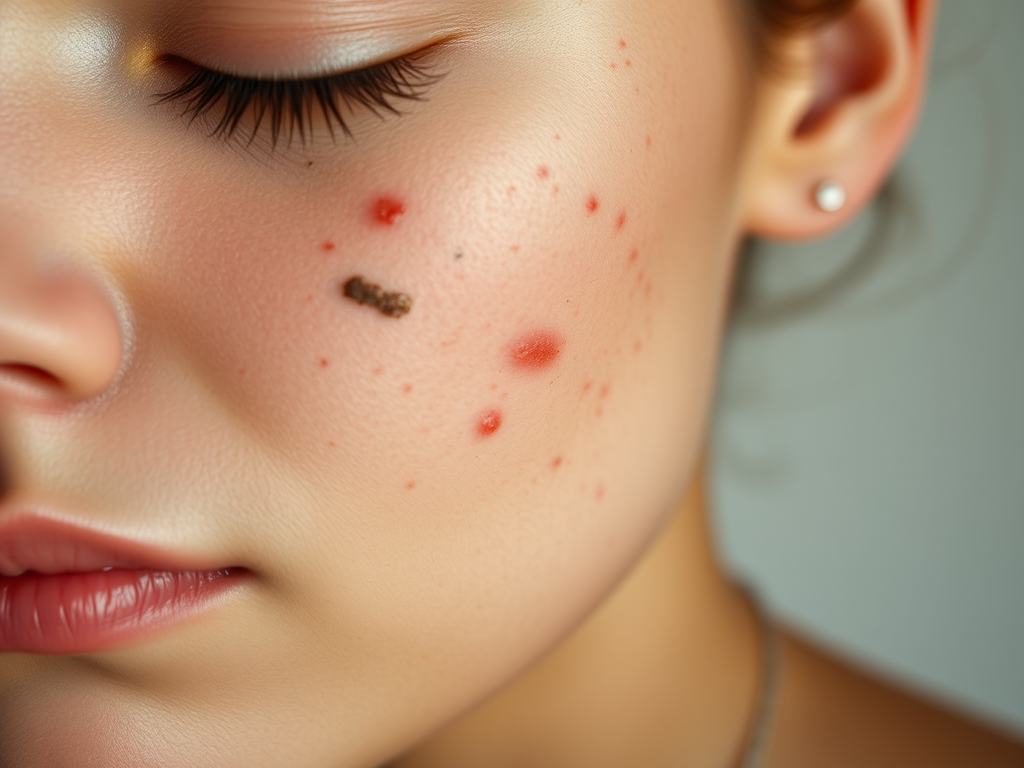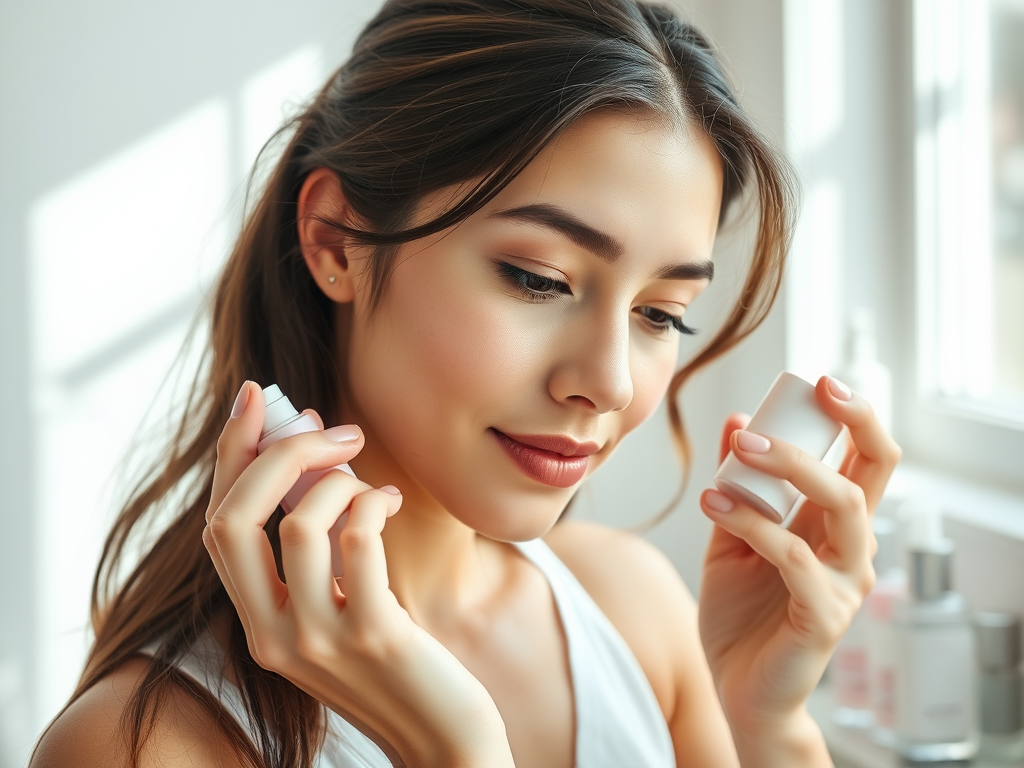Blemishes on the cheeks can be a source of frustration for many individuals, often creating a significant impact on one’s confidence and self-esteem. These skin imperfections vary widely, ranging from acne to dark spots, and each type can carry its own unique set of causes and treatment options. Understanding why blemishes occur is crucial for effective treatment and prevention. With this awareness comes the power to make informed decisions about skincare routines and habits. In this article, we’ll explore the common causes of blemishes, their various types, and the most effective ways to treat and prevent them. Together, we’ll uncover the secrets to achieving clearer, healthier skin.
The Common Causes of Blemishes on Cheeks

Blemishes often arise from a combination of internal and external factors. Hormonal changes are a primary cause, particularly noted during puberty, pregnancy, and menstrual cycles. In addition to hormonal influences, environmental factors play a significant role. Pollutants in the air and harmful UV rays can compromise skin health, leading to the development of blemishes. Another critical aspect is lifestyle choices, including diet and stress levels, which can further exacerbate skin issues.
Hormonal Changes
The fluctuations in hormones can trigger an overproduction of oils in the skin, leading to clogged pores and consequent blemishes. Understanding these hormonal cycles and their influences helps in anticipating flare-ups. Managing stress can also serve as a proactive strategy since stress alters hormone levels, further complicating skin health.
Environmental Factors
Pollution and sun exposure are not just nuisances; they can lead to serious skin changes, including blemishes. Pollutants can irritate the skin and contribute to inflammation, while UV rays can accelerate the skin’s aging process and cause discoloration. It is essential to be mindful of these external elements that can affect one’s complexion.
Diet and Lifestyle Choices
Your diet is closely tied to skin health. Ingestion of high sugar and processed foods can trigger skin inflammation and breakouts. Similarly, smoking and high-stress levels can lead to poor skin conditions. Making mindful dietary choices is essential. Consider incorporating a variety of nutrient-rich foods such as:
- Fruits and vegetables rich in antioxidants
- Whole grains for balanced energy
- Healthy fats like avocados and nuts
Types of Blemishes

The skin can display a range of blemishes, each with its own characteristics. Recognizing the specific type of blemish is crucial for effective treatment.
| Type of Blemish | Description | Common Causes |
|---|---|---|
| Acne | Characterized by pimples, blackheads, and cysts. | Hormonal fluctuations, bacteria, and excess oil |
| Dark Spots | Areas of skin discoloration caused by sun damage or scarring. | Sun exposure, aging, and inflammation. |
| Redness and Inflammation | Skin appears red and irritated, often itchy or uncomfortable. | Allergic reactions, irritants, or conditions like rosacea. |
Treatment Options for Blemishes on Cheeks
Finding the right treatment depends heavily on the type of blemish and its root cause. There are numerous effective approaches to managing blemishes, and exploring various options can significantly improve skin condition.
Topical Treatments
Over-the-counter creams, gels, and serums can effectively target blemishes. Ingredients such as salicylic acid, benzoyl peroxide, and retinoids are known for their efficacy in treating acne and other skin issues. It’s crucial to follow usage guidelines to avoid irritation.
Professional Treatments
For more persistent cases, professional treatments like chemical peels, laser therapy, and microdermabrasion may provide more significant results. Consulting with a dermatologist ensures the best course of action tailored specifically to your skin needs.
At-Home Remedies
Natural remedies can also prove beneficial. Options like tea tree oil, aloe vera, and honey possess antimicrobial and soothing properties. Establishing a routine that incorporates these can be effective alongside any professional treatment plans you may choose to follow.
Prevention Tips
Prevention is often the best method of treatment when it comes to combating blemishes. Knowing what to avoid and what practices to embrace makes a huge difference in skin health.
Daily Skincare Routine
A consistent skincare routine is essential. Gently cleanse your face twice a day, choose non-comedogenic products, and always moisturize to maintain skin balance. Additionally, regular exfoliation can prevent clogged pores and keep the skin rejuvenated.
Healthy Dietary Choices
Choosing a balanced diet not only benefits overall health but also reflects directly on the skin. Foods rich in vitamins, minerals, and healthy fats can support skin repair and enhance its natural glow. Consider avoiding processed and sugary foods that can spike inflammation.
Sun Protection
Using a broad-spectrum sunscreen daily is critical in preventing sun-related blemishes. UV rays can damage skin cells and contribute to discoloration, making sun protection an absolute necessity.
Conclusion
In conclusion, understanding blemishes on the cheeks—why they occur and how to treat them—is vital in managing skin health. From hormonal shifts to environmental factors, multiple influences can lead to these imperfections. Recognizing the type of blemish, along with employing a tailored treatment approach and preventive strategies, positions individuals for success. By investing time and effort into skincare, anyone can achieve clearer, healthier skin and boost their self-confidence.
Frequently Asked Questions
- What are the main causes of blemishes on the cheeks? Blemishes can result from hormonal fluctuations, environmental exposure, and diet.
- Are blemishes on cheeks common in adults? Yes, blemishes can affect adults at any age due to various factors like stress and hormonal changes.
- How long does it take for blemishes to clear up? It can vary; mild blemishes may clear in a few days, while others might take weeks or months depending on treatment.
- Can certain skincare products worsen blemishes? Yes, products with harsh ingredients or comedogenic properties can irritate skin and cause more blemishes.
- Is it advisable to pop blemishes? No, popping blemishes can lead to scarring and infection. It’s best to let them heal naturally.



